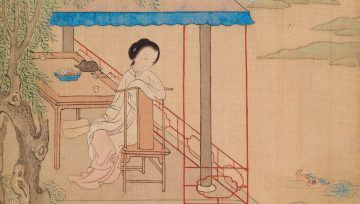 Julianne Chung in Psyche:
Julianne Chung in Psyche:
When I was 15, one of my closest friends died unexpectedly. Our physics teacher broke the news to me after I’d sat an exam, having wondered all the way through why my friend wasn’t there doing the same. I still don’t have the words to describe how I felt: it was something approaching shock, distress, disorientation. I didn’t know what to think, much less what to do. I spent many nights awake and many days in a daze.
Fifteen years later, when I was in graduate school, another friend died suddenly, a man I loved very much. I remember checking my phone and finding out, to my dismay, via text message. But while my initial response was much the same as before, there was a palpable difference in how I felt later on. While I was again surprised and saddened, I was much less disoriented than I’d been as a teenager. I could still think, and I could still get things done. It seemed to me that I’d become better at living with loss.
You might think that the reason for this difference is obvious – I was older, and I’d had more experience in coping with death. But raw experience alone isn’t enough: what matters more is whether we learn from experience. And learning from experience, especially an experience as difficult as the death of a loved one, can involve quite a lot. Among other things, it can involve creativity.
This claim might seem surprising. After all, creativity is often associated with the idea of a lone creative genius, an individual who not only excels at what they do, but also transforms the world in the process. Further, even if we don’t limit ourselves to romantic or heroic perspectives on the nature and value of creativity, it’s commonly thought that creativity at least aims at novelty or originality.
This way of thinking about creativity isn’t universal. The Zhuangzi (莊子), a classical Chinese philosophical and literary text, provides a different perspective.
More here.
